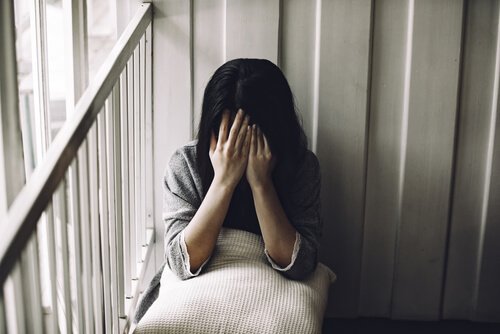How Can We Help Sexual Abuse Victims?

The La Manada case shed some light on a reality that we’d forgotten for a while: how difficult it is for society to understand sexual abuse victims. It’s an example of what tends to happen in society: people blame the victim for the event and use their attempts to get their lives back on track against them, questioning their side of the story.
The truth is that sexual harassment is something that stays with the victim, it’s not just a momentary thing. The assaulted individual has to deal with it for the rest of their lives.
“I wish I could tell my sister that she’s not dirty, and that she should not feel any shame for something that she literally was not responsible for.”
-Viola Davis-
What factors influence the recovery of sexual abuse victims?
First of all, it’s important for victims to work on an aspect that greatly influences their psychological distress: their constant guilt and self-blame. After experiencing this trauma, it’s quite common for an individual to think badly of themselves. Sexual abuse victims tend to do this quite often, which only makes the manifestation of post-traumatic stress disorder and depression much more likely.

When we see different sexual abuse cases on TV, we may realize just how much people question the victims. Many people ask them things such as “But did you actually refuse?” or “Did you really try to stop them?” Having people doubt what happened reinforces the victim’s attachment to their negative beliefs.
“STOP VICTIM SHAMING. It is because of you that so many survivors live in fear.”
-Aly Raisman-
Something that’s very important for sexual abuse victims is social and emotional support. However, it’s important to bear in mind that giving support isn’t enough if the person can’t see it. The victim needs to know there are people out there willing to help so they can regain their well-being. In addition, coping strategies and adaptive emotional regulation are extremely important.
How can sexual abuse victims work towards their well-being?
First off, it’s important to use cognitive restructuring techniques in order to change all the beliefs sexual abuse victims have about themselves, as well as their feelings of guilt regarding what they suffered. In this sense, they must learn to modify those negative ideas and thoughts that tell them they deserved what happened to them.
“We must send a message around the world that there is no disgrace in being a survivor of sexual violence – the shame is on the aggressor.”
-Angelina Jolie-
Unfortunately, it’s not easy to get rid of said thoughts since the victim is basically used to them by now. In terms of coping strategies, victims can implement strategies focused on the problem (which are usually adaptive for other situations). However, in the case of abuse, the best ones to use would be those that focus on emotions because abuse is an event that victims can’t control.
Finally, it’s important to mention social support and the way sexual abuse victims perceive it. Sometimes, when someone close to us experiences a traumatic situation, we feel the need to help them but we just don’t know how. Consequently, we offer our help and support, but perhaps not in the way the victim needs it.

Occasionally, we feel frustrated when we try to help someone and we don’t get the best results. That being said, it’s vital to be aware of our limitations and the fact that there are some things we just can’t handle. Thus, it’s best just leave to leave it to mental health professionals (psychologists and psychiatrists). At the end of the day, they’re the ones who will be capable of helping the victim appropriately. This doesn’t mean we shouldn’t be there for them. However, we must ask ourselves if we’re doing it the right way.
“I am not what happened to me, I am what I choose to become.”
-Carl Jung-
All cited sources were thoroughly reviewed by our team to ensure their quality, reliability, currency, and validity. The bibliography of this article was considered reliable and of academic or scientific accuracy.
This text is provided for informational purposes only and does not replace consultation with a professional. If in doubt, consult your specialist.








